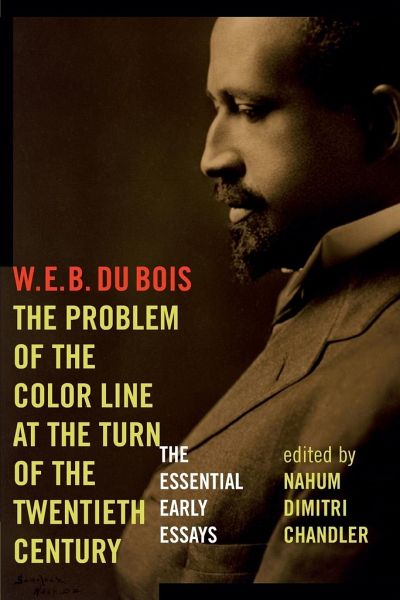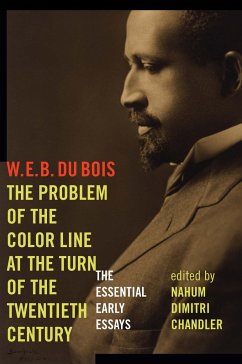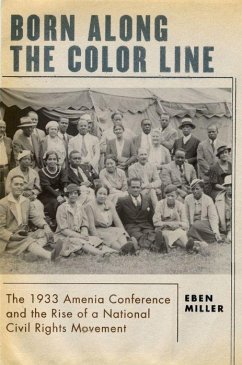
The Problem of the Color Line at the Turn of the Twentieth Century
The Essential Early Essays
Herausgeber: Chandler, Nahum Dimitri
Versandkostenfrei!
Versandfertig in 1-2 Wochen
38,99 €
inkl. MwSt.
Weitere Ausgaben:

PAYBACK Punkte
19 °P sammeln!
This volume assembles essential essays--some published only posthumously, others obscure, another only recently translated--by W. E. B. Du Bois from 1894 to early 1906. They show the first formulations of some of his most famous ideas, namely, "the veil," "double-consciousness," and the "problem of the color line." Moreover, the deep historical sense of the formation of the modern world that informs Du Bois's thought and gave rise to his understanding of "the problem of the color line" is on display here. Indeed, the essays constitute an essential companion to Du Bois's masterpiece published i...
This volume assembles essential essays--some published only posthumously, others obscure, another only recently translated--by W. E. B. Du Bois from 1894 to early 1906. They show the first formulations of some of his most famous ideas, namely, "the veil," "double-consciousness," and the "problem of the color line." Moreover, the deep historical sense of the formation of the modern world that informs Du Bois's thought and gave rise to his understanding of "the problem of the color line" is on display here. Indeed, the essays constitute an essential companion to Du Bois's masterpiece published in 1903 as The Souls of Black Folk. The collection is based on two editorial principles: presenting the essays in their entirety and in strict chronological order. Copious annotation affords both student and mature scholar an unprecedented grasp of the range and depth of Du Bois's everyday intellectual and scholarly reference. These essays commence at the moment of Du Bois's return to the United States from two years of graduate-level study in Europe at the University of Berlin. At their center is the moment of Du Bois's first full, self-reflexive formulation of a sense of vocation: as a student and scholar in the pursuit of the human sciences (in their still-nascent disciplinary organization--that is, the institutionalization of a generalized "sociology" or general "ethnology"), as they could be brought to bear on the study of the situation of the so-called Negro question in the United States in all of its multiply refracting dimensions. They close with Du Bois's realization that the commitments orienting his work and intellectual practice demanded that he move beyond the institutional frames for the practice of the human sciences. The ideas developed in these early essays remained the fundamental matrix for the ongoing development of Du Bois's thought. The essays gathered here will therefore serve as the essential reference for those seeking to understand the most profound registers of this major American thinker.













